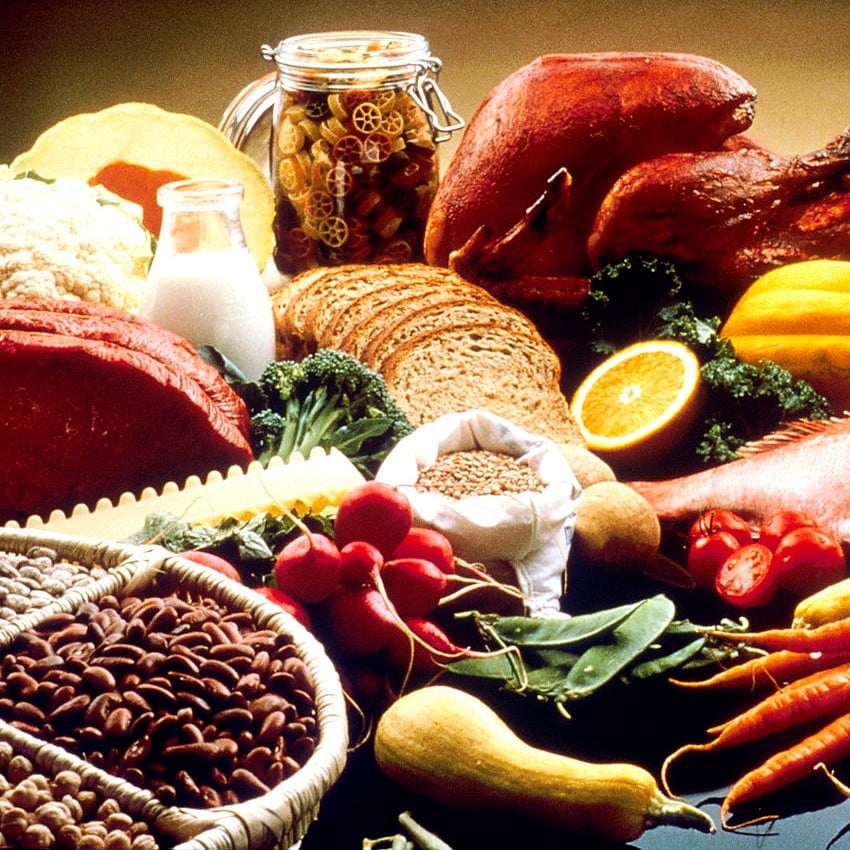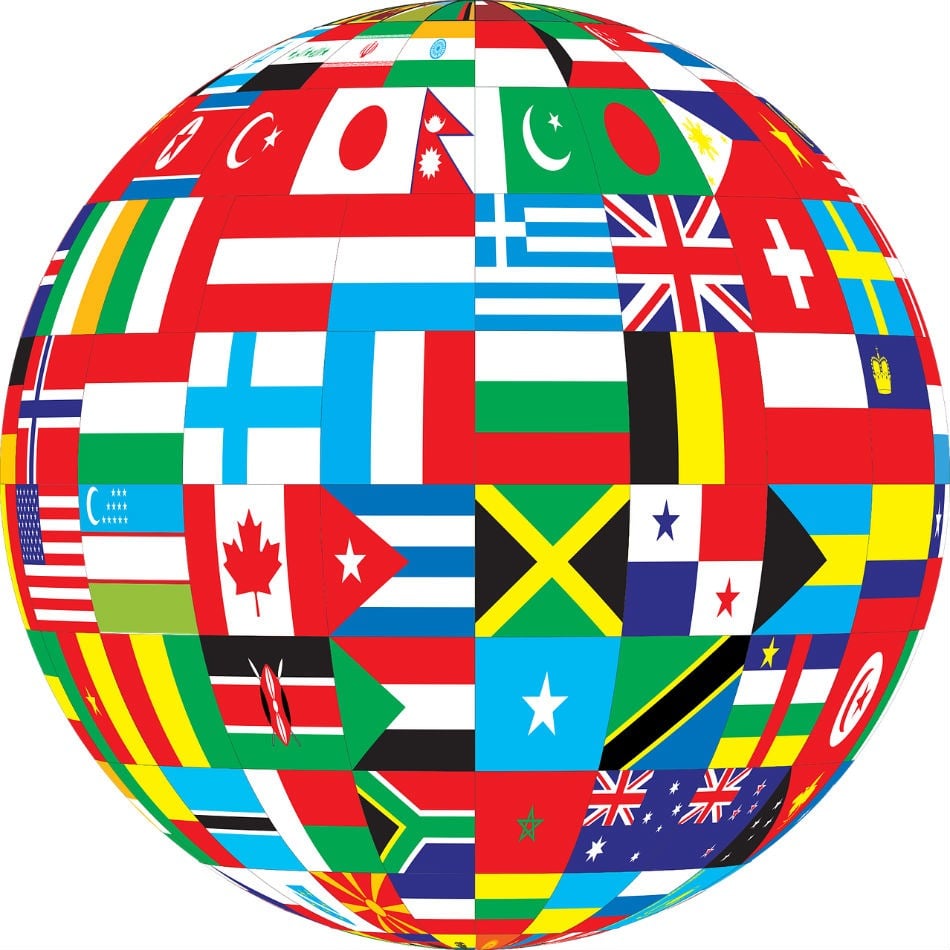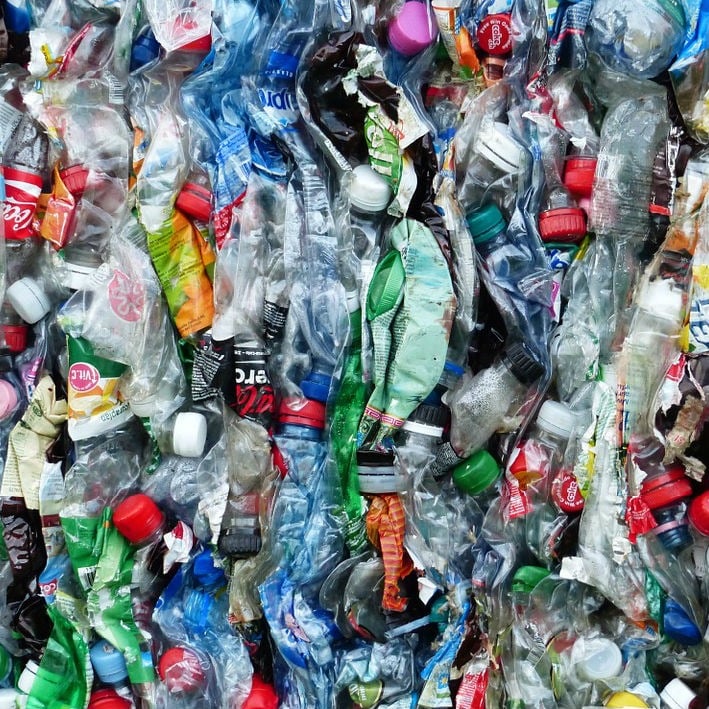Sustainability has been heavily talked about in media around the world. Especially the past few decades as scientists warn about the environmental impacts of human acts. As phrases of “global warming” and “species extinction” surface, people are starting to realize the impacts of human activities. Despite the common notion that sustainability has only been a concern in the past few decades, the history of this concept goes back further in time.
globalEDGE Blog - By Author: Jiachen Mo
Publish Date:
The past two years have been crazy for many industries, including the oil market. Crude oil was sliding into the negatives early on in the pandemic; however, the price has surpassed $100 per barrel recently. The global benchmark, Brent crude oil, was trading above $130 per barrel this past week. Since gas prices primarily depend on oil prices, there has been a significant increase in gas prices worldwide. Many reasons led to this increase, some weighing more than others.
Publish Date:
The Olympics is one of the few events where people from all over the world gather together. People are competing for their home country while achieving individual accomplishments and record-breaking scores. It is a time of gathering and celebration. However, in order to make this event possible, the host country has to plan years in advance. Sports venues, athletes' accommodations, and transportation improvements are all necessary to prepare for the crowds. The venues, in particular, have received criticism over the past several decades. From the economy perspective, their creation costs are high with a low utility after the event. From the social perspective, millions of people were forced to move in order to make space for the constructions.
Publish Date:
Luxury brands have always been a huge player in the economy. According to a market report, the luxury fashion market is estimated to be around $110.64 billion in 2020 with continued growth. However, since the arrival of Coronavirus in 2019, the world has been changing in unimaginable ways. It has affected all aspects of our lives from lifestyles to buying patterns. The luxury fashion market was also a victim, contracting for the first time since 2009. In addition to its market size and revenue, this industry is going through some other changes.
Publish Date:
The globalEDGE team has recently updated the Forbes 2000 corporations list with the latest 2020 information. For every country under the "Corporations" tab, a list of companies will appear in descending order of total sales value. Every company is categorized into a gloablEDGE industry, where you can learn about other similar companies and general industry trends. The display order of companies can also be adjusted by clicking on the corresponding column headers: Profits, Assets, and Market Value.
For example, here is the link to the United States' corporation list.
Publish Date:
The Industry Events section was recently updated by the globalEDGE team. The industry events page contains upcoming conferences, meetings, webinars, and other types of events covering current trends and topics in each industry. These events take place internationally and each event listed on the page links to the event's official website. Due to COVID, many upcoming events will be held virtually. This is a valuable destination for professionals in each specific industry to connect with others while expanding their own knowledge.
Publish Date:
Holiday season has always been a period of high spend. Retails are rushing last minute to increase their sales while consumers are all in the happy spirit of buying gifts for their loved ones. With desires from both the seller and the buyer, this is the perfect environment for buying. Brands around the world are preparing their products but this year will surely look different given the circumstances with COVID-19.
Publish Date:
When we think about chocolate, we usually refer to three kinds: white, milk, and dark. These treats have been a part of our lives for decades. From snacks to drinks, chocolate satisfies the craving of millions of people around the world. It is estimated that every year, about 7.2 million metric tons of chocolate are consumed worldwide. Being such a mature market, no one expected an addition to the family. However, in 2017, a Swiss chocolate maker Callebaut announced the existence of a fourth type of chocolate—Ruby Chocolate.
Publish Date:
Perhaps one of the few industries not affected by the COVID pandemic is the dietary supplement industry. Like hand sanitizers, the demand for supplements, especially immunity-related, saw a huge surge after the outbreaks. Although a portion might be due to panic-buying, the overall demand and awareness for these products have skyrocketed. In fact, the nutraceutical market had a very strong forecast before the pandemic even took place. And, being a relatively new industry, innovation can be seen everywhere in dietary supplements, from marketing campaigns to selling methods. However, as with every industry, there are always still opportunities for growth.
Publish Date:
Plastic has now become an inseparable aspect of our lives. Convenient and user-friendly, it has enhanced our lives in many ways. However as our reliance grows, we need to be cautious of the side effects. Since its mass-production in the 1950s, 4.9 billion tons have been sent to landfill, and only 600 million tons have been recycled. There is only so much space on Earth. Scientists and environmentalists from all over the world are trying to find solutions to solve the issue of single-use, unrecyclable waste.
Publish Date:
By now, everyone has heard of the newly discovered virus called coronavirus (COVID-19). Despite its short existence, its impact has already spread to countries all over the world. There have been over 169,000 confirmed cases worldwide, including over 6,000 deaths. Being a virus that spreads from human to human, the general advice given by the World Health Organization is social distancing. As a result, many major conferences and events are postponed or canceled. People are strongly encouraged, sometimes even mandated, to avoid crowds and public events. Due to these precautionary steps, many industries are taking a hit, including the film industry.
Publish Date:
In today's digitized world, everything is shifting to incorporate technology, especially the retail industry. Customer preferences are changing, and companies have to quickly adjust their strategies and style in order to stay competitive. For example, online retail has been in the spotlight for the last decade. It is convenient for both the customer and the retailer; however, how does it affect the manufacturer's and retailer's supply chains?
Publish Date:
By now, everyone has heard of virtual reality (VR). For the past decade, scientists and engineers have tried to improve this technology to be more user-friendly and affordable. Companies around the world are all investing in this "next big thing". Thanks to their hard work, VR has become not just something in fantasy movies but also a technology that can be used in daily life.
Publish Date:
A health-and-wellness storm has been sweeping through countries around the world. It has affected and shaped numerous industries, from food to technology. Of course, the ever-changing fashion industry is hopping on the bandwagon as well. This time, it has partnered with the sports industry to create apparel that can be worn not only during workouts. Athleisure wear gave exercise attire a stylish twist in addition to innovative fabrics that are designed for people to have a laid-back, yet stylish lifestyle.
Publish Date:
As cultures collide, people are becoming more tolerable of changes and foreign ideas. During the past few decades, the variety in every aspect of life has been increasing, especially in the food industry. People are becoming more adventurous and willing to try different tastes and spices. However, some of these so-called "authentic" restaurants are not as authentic as they may seem.
Publish Date:
The Community College Conferences section was recently updated by the globalEDGE team. These conferences usually occur from March until May every year at locations worldwide. This is a valuable destination that guides community college educators who are looking to refine or develop new programs. In addition, it also provides people interested in international business the opportunity to learn and connect.
Publish Date:
As globalization continues, companies around the world are diversifying their supply chains and exploring outsourcing options. Expectations for supply chains are steadily increasing. The goal is for consumers to receive goods at lower prices and higher qualities in a timely manner. However, these are all contingent upon the political atmosphere. A company's supply chain in a particular country depends heavily on the restrictions on market access, transport and logistic services infrastructure, and the business environment.
Publish Date:
Postcards could be dated back to the Victorian era in the UK. It was the first time that brightly colored photos were sent and received to share the joy of special occasions, travel destinations, and precious memories. However, there has been a steady decline in the sales of postcards, predominately due to the rise of social media and portable technologies. These platforms have led to instant sharing and convenience for postcard consumers.
Publish Date:
The Community College Course Syllabi section was recently updated by the globalEDGE team. This section contains a list of International Business focused syllabi from different community colleges in the United States. Including a wide range of disciplines, make sure to check out and utilize the Community College Course Syllabi resources to develop or enhance international business courses, as well as to gain knowledge as an educator.
Publish Date:
Recently, big retail giants have been approaching their brick-and-mortar stores differently. Instead of following their traditional footsteps, companies have been looking into alternative ways to stay competitive in the digital economy and to attract a wider consumer base. This trend has just recently surfaced in the U.S., but for other countries, this has already been in practice for many years. In areas with dense population and expensive rents, it is very typical for retailers to downsize. It allows the company to operate without incurring an unreasonable amount of fixed expenses. Best of both worlds, it offers convenience to customers while staying competitive amongst other retailers.
Publish Date:
As technology advances and connectivity increases, countries are closer to each other than ever. Economically, trade blocs have increased partnership among countries and encouraged production specialization. Politically, countries are moving towards a free market and competing for additional foreign investments. Recently, however, these trends seem to be going in a slightly different direction. Governments are encouraging more domestic investments and developments. A stronger sense of nationalism is developing while the term "globalization" now has a negative connotation to some audiences.
Publish Date:
On January 1, 1994, the United States, Canada, and Mexico came together and signed the North American Free Trade Agreement (NAFTA). This trade bloc aims to reduce trade restrictions among the three countries, thus encouraging investment and increasing market access. Under President Trump's administration, the three countries reached a new agreement called the United States-Mexico-Canada Agreement (USMCA) which replaces the former NAFTA. These two agreements have many similar points, yet several unique distinctions as well.
Publish Date:
Automation, a familiar term to all of us, was rarely used 100 years ago. Technology advancements took place at an exponential speed during the last century, and this trend shows no evidence of slowing down. It is estimated that 40% of the world’s jobs will be replaced by automated robots in the next 15 years. While both blue collar and white collar professions will be affected, occupations that involve dangerous and repetitive activities will be up first. Artificial intelligence and automation are destined to change the workforce and transform the routine of many industries.
Publish Date:
Snacks have always played an important role in people's lives. It satisfies cravings and provides energy between meals. In 2018, revenue of snack sales exceeded $150 billion dollars worldwide. Despite its optimal revenue and growth, the industry has been going through some serious reconstruction recently. Consumers are demanding healthier options and craving less indulgence food.
Publish Date:
There are about 7,000 different languages spoken around the world. These languages are more than just a form of communication but instead represent different cultures, traditions, and identities. They are an inseparable aspect of people's lives. Especially in today's society, bilingualism or even multilingualism is very common due to close proximity to other countries with different languages and an increased desire to acquire such skills. Below are some advantages of being multilingual:
Publish Date:
The food service industry is experiencing more changes than ever. Several decades ago, traditional food services were improved by food delivery apps. Now, a new method of food delivery is on the rise that will revolutionize this industry. Autonomous vehicles have been in the spotlight recently, from daily conversations to public debates. But who would have imagined for autonomous driving to step into the food industry first? Currently, auto manufactures from around the world are partnering with small startups to deliver food and groceries.
Publish Date:
In the past few decades, there has been a steady increase in the number of international tourists everywhere, both inbound and outbound. As connections increase due to globalization and advanced technology, more people are traveling for leisure than ever. This increase has shaped a new industry with high growth potential. In recent years, tourists' spending is increasing at a surprising speed, contributing to countries GDP and shaping many travel policies.
Publish Date:
The beauty industry is constantly changing, adapting to new consumer wants and developing innovative products. Demands in the industry are very volatile, affected by many factors on a daily basis. Below are some current trends:
Publish Date:
This past week, the Midwest United States was swept by a deadly winter storm. With wind chills, some areas' temperature reached a staggering negative 60 degrees Fahrenheit. Extreme weather, like this storm, impedes many industries and processes, creating inconveniences and delays. In response to weather, many factors change including demand, production, and delivery. As a result, the supply chains of numerous companies have been impacted in a negative way.
Publish Date:
Over the past several decades, many countries in the Middle East, Asia, and South America have experienced unprecedented growth. Reduced restrictions combined with increased globalization sparked interest from the worlds largest corporations and investors. Numerous Fortune 500 companies are opening international headquarters for better reach and lower production costs. Business hubs are shifting locations from the West to a better balance across the world. Read below for details on several specific countries and cities.
Publish Date:
Taking into consideration cancellation and no-shows, airlines have always been overbooking flights in order to maintain a full flight and keep the prices low. Most of the time, predictions are accurate and all passengers are able to board the flight. However, on some occasions, passengers will be "bumped". Bumping also referred to as "declined-boarding", is when passengers are forced to give up their seats involuntarily. Before bumping passengers, airlines must first ask for volunteers in exchange for compensation. When there aren't enough volunteers, bumping takes place.
Publish Date:
Plastics are an inseparable aspect of modern society. From packaging of household items to industry appliances, plastics are always depended on. Because of its versatility and cheap production cost, we have over-relied on it. Plastic production has grown over 20-fold in the past 50 years. It is expected to grow even more in the years to come. The problem isn't the production, but how plastics are handled after usage. Landfills are rapidly being filled up and oceans are becoming polluted as well. On average, only 9% of all plastic wastes are recycled. However, countries and companies around the world are trying to come up with new solutions.
Publish Date:
Stan Lee, an exceptional individual who helped to create remarkable characters like Iron Man, Thor, the Hulk, and the X-Men, passed away last week at the age of 95. He was a comic book writer and more importantly, revolutionized the comic book industry. In his stories, the superheroes are more relatable. They go through hardships that normal people experiences, that the readers experiences. For example, he created a new superteam, The Fantastic Four, that broke the tradition of flawless, impeccable superheroes. He targeted his audiences well, and as a result, helped Marvel in becoming an important pillar in Hollywood.
Publish Date:
The food industry has always been slow to changes. But with new technologies on the rise and more customer demands, this stubborn industry is slowly adapting. Below are some new breakthroughs in technology that are affecting what we eat and how our food is made.
Publish Date:
In today's fast-paced society, people are constantly on-the-go. As a result, more people are choosing the alternative form of dining, food delivered straight to their doorsteps. It dramatically lessens meal-prepping time without sacrificing food quality. Imagine having the option of anything within your city delivered to you within thirty minutes, who would turn that down? More apps are surfacing in order to meet the demand for better and faster food delivery services.
Publish Date:
Regardless of the country's size or geographical location, tourism has always contributed to its economic growth and GDP. Governments tend to invest heavily because it brings in profit while increasing the country's reputation. Especially for developing and island countries, tourism dependency is common because other industries, such as manufacturing, may be less developed due to area, resource, or population limitations.
Publish Date:
Natural disasters have always been detrimental to society. They disturb peoples' lives, destroys infrastructure, and the aftermath can last up to several months. All of these factors affect the global economy in its own way. From 2000-2017 alone, there was an estimate of about $3 trillion economic loss from natural disasters worldwide. Since this number only represents the measurable losses, the actual amount goes way beyond this number.
Publish Date:
The aviation industry has advanced society in numerous ways despite its relatively short existence. Being the fastest and most convenient form of transportation for long-distance travels, people from all over the world fly daily for education, leisure, and business. In fact, airlines have reported a total of 4.1 billion passengers in 2017 alone. One downside of the industry is its price instability. The major determining factor is the cost of fuel, and as we all know, fuel prices are extremely volatile. The International Air Transport Association, an association composed of 290 member airlines, announced at its recent meeting that the profit forecast for 2018 is going to decrease by 12% due to the unexpected increase in fuel prices. According to the Jet Fuel Price Monitor, fuel prices have already increased by 24.97% compared to last year.








































